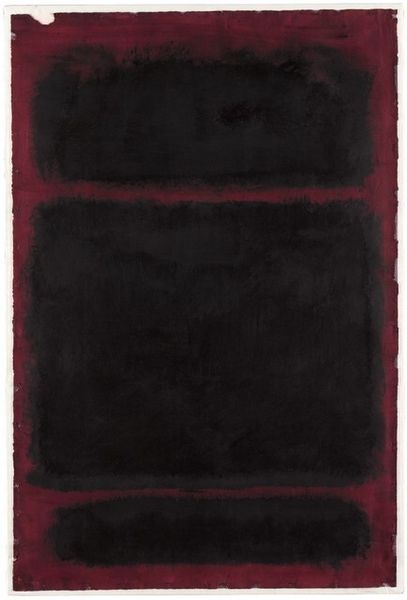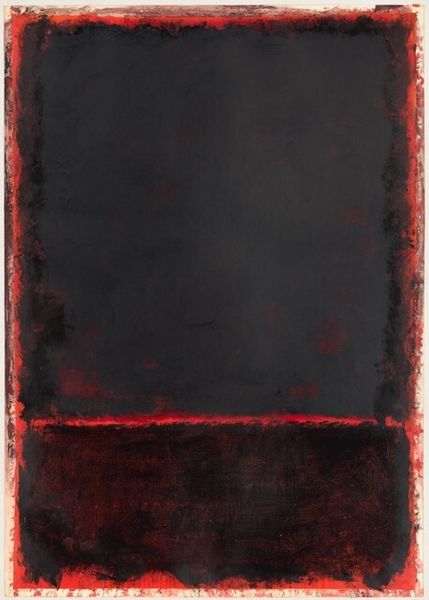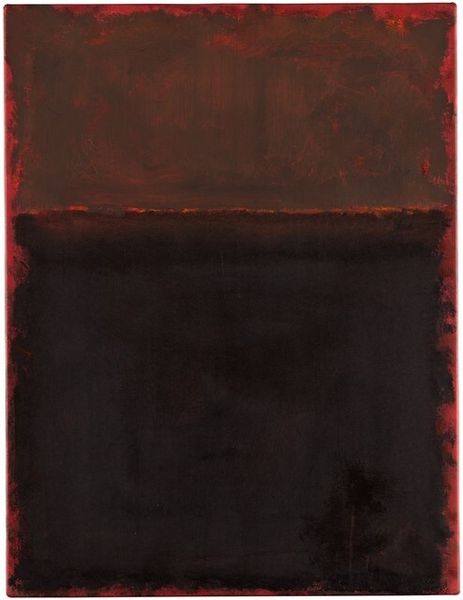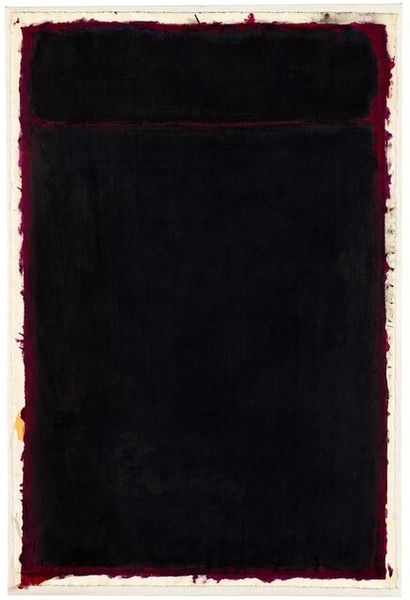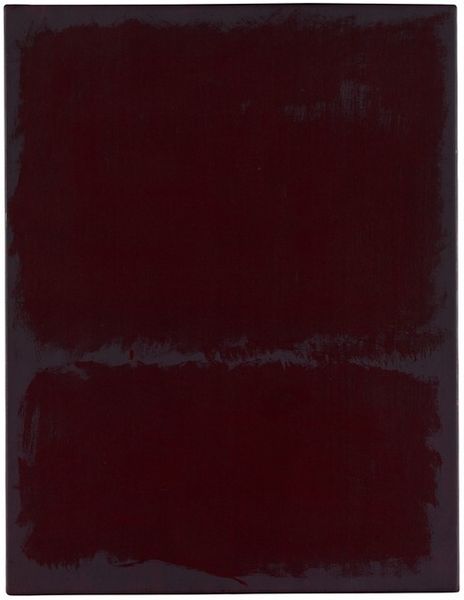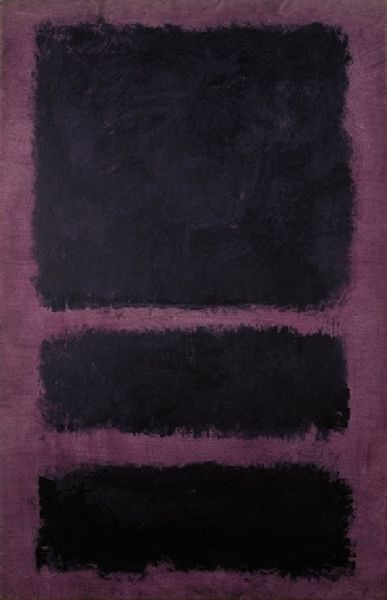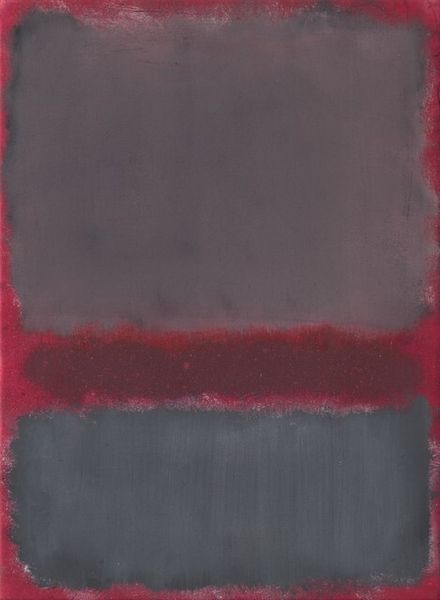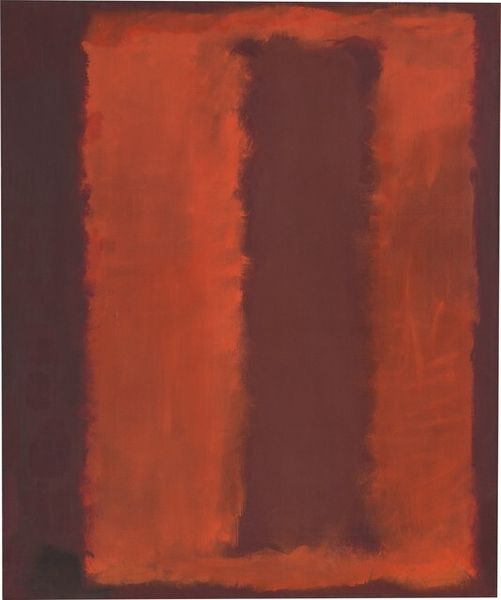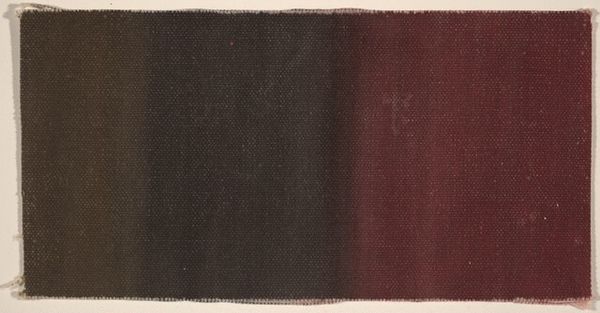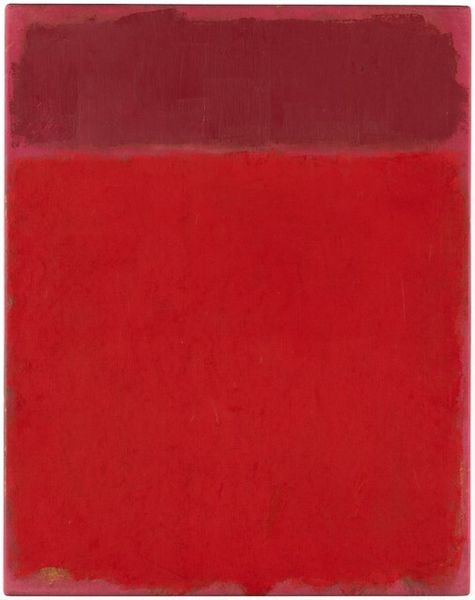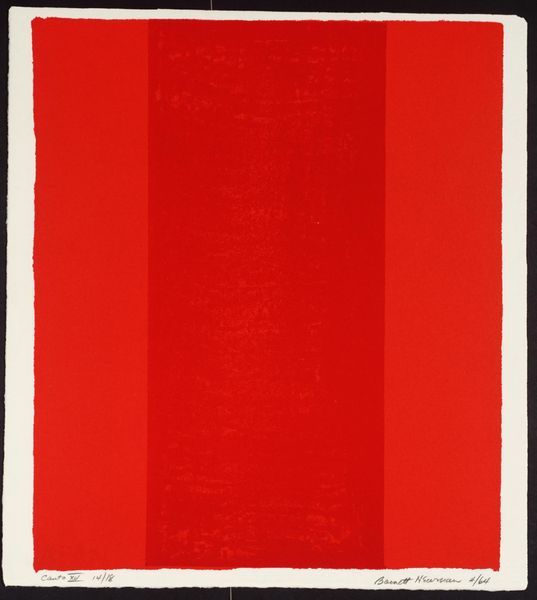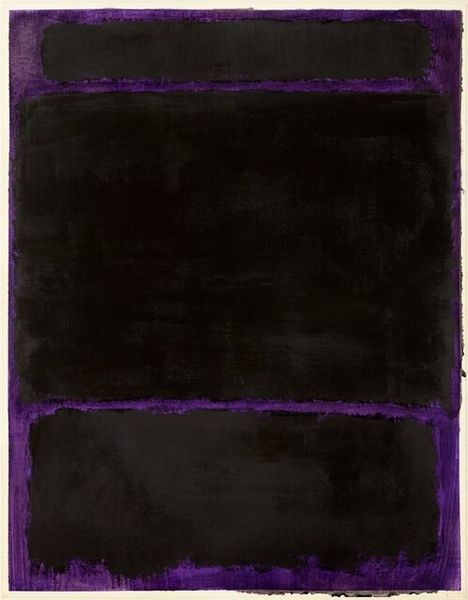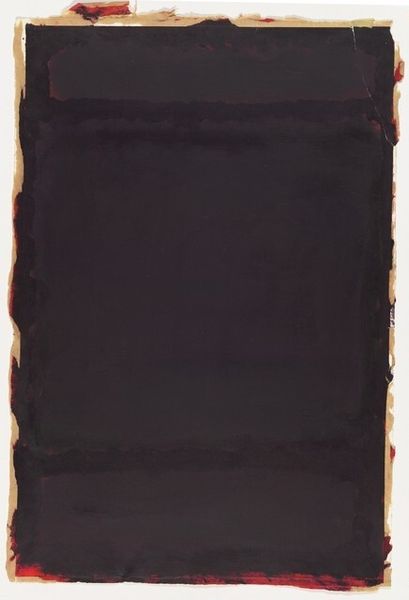
painting, oil-paint
#
abstract-expressionism
#
non-objective-art
#
painting
#
oil-paint
#
colour-field-painting
#
abstraction
#
allover-painting
#
modernism
Copyright: National Gallery of Art: CC0 1.0
Curator: This is an untitled oil painting by Mark Rothko, created in 1968, towards the end of his career. Editor: Initially, it feels heavy, almost oppressive. The dominance of black is stark, only relieved by that thin, maroon band. It feels like a horizon line weighted down by what's above it. Curator: Rothko was deeply invested in the emotional power of color. This reduction to almost pure black resonates with cultural symbols of mourning and the void. The maroon rectangle disrupts what could be an endless expanse, inviting a focal point but denying easy resolution. Editor: Do you think there is a conscious intention here related to broader societal turmoil? 1968 was, after all, a year of considerable unrest. Could this painting symbolize feelings of despair and struggle during that period? Curator: I think Rothko was grappling with existential themes, his own mortality, for one. I'd lean towards a personal rather than overtly political reading. That dark void, that strip of crimson, almost like dried blood, to me it echoes profound loss. The crimson band acts as a form of catharsis; a hope offering redemption amid loss. Editor: Interesting perspective! While that somber note resounds deeply with Rothko’s well-documented depression, I feel we shouldn't ignore the painting's socio-political backdrop. It’s too easy, in my view, to universalize experiences without grounding them within specific historical contexts. Curator: Agreed. However, the reduction of form here could be interpreted as a turn inwards, towards universal anxieties rather than outward facing social commentary. The image is very open and abstract; a way of conveying something fundamentally felt rather than a defined socio-political condition. Editor: Still, Rothko couldn’t completely isolate himself. Everything filters through experience. Perhaps its power stems from its resonance with individual and collective shadows of that era? Curator: It becomes an exploration of what happens at the edge of legibility; where darkness overwhelms even as that singular burst attempts to cut through it. Editor: Maybe its potency is in that constant tension: the individual struggle within larger systemic struggles. Rothko has made something universally resonant and utterly specific at the same time.
Comments
No comments
Be the first to comment and join the conversation on the ultimate creative platform.
